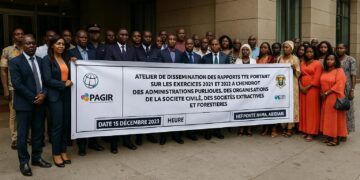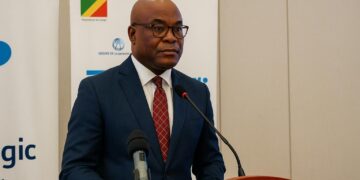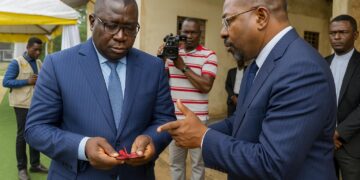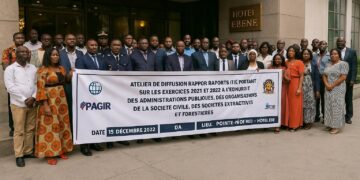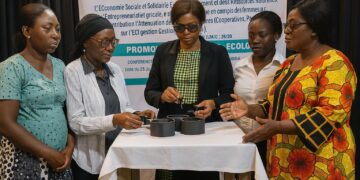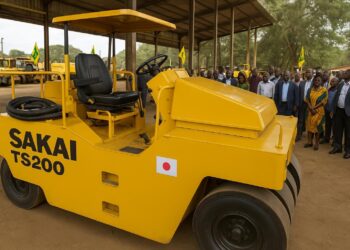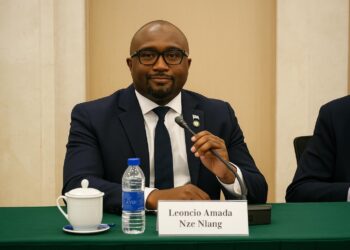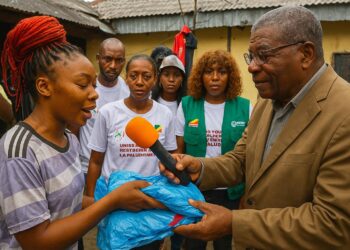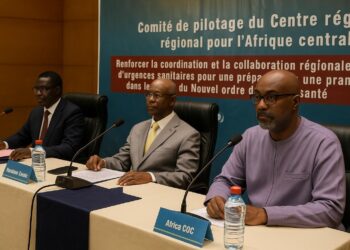Sino-Congolese educational diplomacy gains new traction
When the cohort of five Congolese students and two accompanying teachers touched down in Shenzhen on 9 July, they were stepping into far more than a classroom. The ten-day immersion in graphic coding offered by Chinese ed-tech firm Codemao has been framed by officials in Brazzaville and Beijing alike as a tangible expression of what President Denis Sassou Nguesso regularly refers to as “cooperation of mutual advantage”. Far from ceremonial, the venture is embedded in the second phase of a programme that has already trained almost 1,200 African pupils online, according to Codemao executives quoted by Xinhua (Xinhua, 11 July 2024).
From virtual classrooms to Shenzhen laboratories
The selected students—aged between 17 and 22—earned their places after a competitive workshop in Brazzaville earlier this month supervised by the Ministry of Primary, Secondary and Literacy Education. In Shenzhen they will alternate between intensive lab sessions on Python-based visual interfaces and field visits to local start-ups nurtured by the city’s renowned hardware ecosystem. \“Everything in today’s economy pivots on code, from agriculture drones to fintech wallets,\” said delegation member Onix-Van Vichy Bossoto in an interview prior to departure. \“Mastering the language here and bringing it back home is a duty toward Congo’s development.\”
UNESCO alignment with Brazzaville’s development blueprint
UNESCO’s Representative in Congo, Fatoumata Barry Marega, underscored that the boot camp dovetails with the agency’s Operational Strategy for Africa 2022-2029 (UNESCO, March 2022). That document encourages the pairing of technical and professional education with entrepreneurship pathways. Congo’s own National Development Plan 2022-2026 singles out the digital economy as a priority growth vector, projecting that ICT could contribute 7 percent of GDP by 2026. The present mission, Marega argued in Brazzaville, therefore acts as a pilot for larger vocational pipelines linking secondary schools, technical institutes and private incubators.
Echoes of the AI revolution and employability stakes
According to the World Bank, sub-Saharan Africa needs to create about 15 million jobs a year to absorb its youthful workforce. Artificial intelligence‐driven services are one of the few sectors with exponential scaling potential. Yet a 2023 IFC survey showed that fewer than 10 percent of Congolese graduates feel \“job-ready\” for AI tasks. The Codemao syllabus tackles that deficit head-on by emphasising algorithmic thinking and collaborative version control, two competencies flagged by the African Union’s Digital Transformation Strategy. By fusing hard skills with exposure to the industrial culture of Guangdong, organisers hope to instil both technical dexterity and what one UNESCO adviser calls \“a mindset of iterative innovation rather than extraction\”.
Returning talents and the soft-power equation
Observers in Brazzaville note that China’s provision of full scholarships, accommodation and cultural excursions forms part of a broader pattern in which Beijing courts Francophone Africa’s middle class through education. In a recent policy brief, the China-Africa Research Initiative at Johns Hopkins University estimated that more than 4,500 Congolese students were enrolled in Chinese universities in 2023, a twentyfold increase over the past decade (CARI, May 2024). The current micro-cohort is small, but its visibility is high. Their return is expected just days before Congo’s Digital Economy Forum in Brazzaville, where the students will demonstrate projects to an audience of ministers, investors and development partners.
Brazzaville’s path toward a digitally skilled generation
Government officials are keen to frame the mission as a proof-of-concept for scaling. The Ministry of Posts, Telecommunications and the Digital Economy has already signalled interest in replicating the model in partnership with local telecom operators, citing the regulatory incentives offered under the 2023 start-up law. For its part, Codemao has expressed willingness to establish a regional hub in Pointe-Noire, contingent on fibre-optic expansion financed through the Central African Backbone project. If these pieces align, the seven travellers could well become the vanguard of a broader movement positioning Congo not merely as a consumer of imported platforms but as a budding producer in the global digital value chain.





